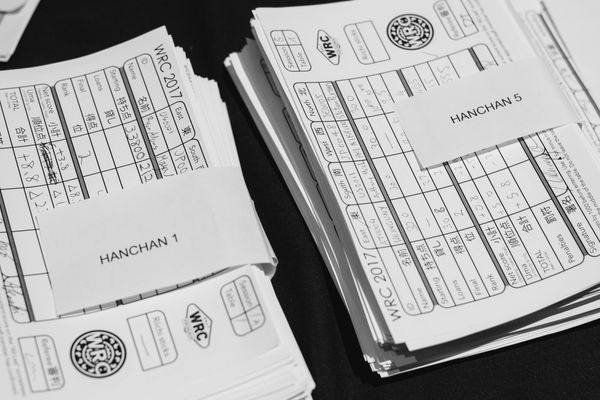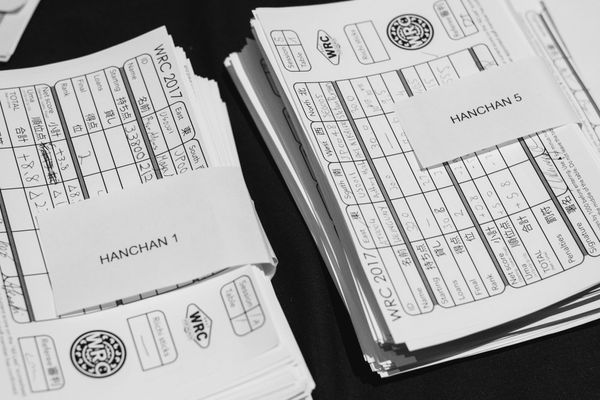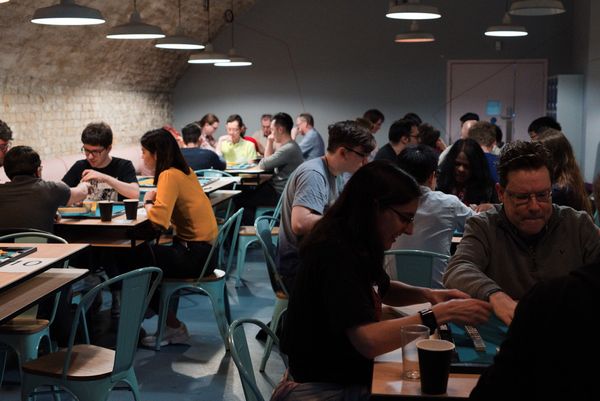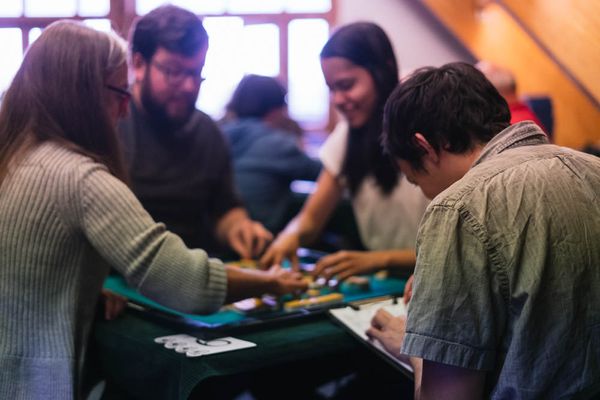EZmodo
This will be a short rant because I am drunk and incoherent. Osamu edit this in the morning.
It’s extremely often I read about discussions of various mahjong clients/software, and someone will come out of nowhere and say “but it doesn’t have ________!”
As a normal player who has never even considered programming a mahjong client or software in my life, I am as harsh a critic as any, perhaps even more so than the various people still playing single hand rounds for money on mahjongtime. But people whining because the client of your choice does not allow you to open riichi/ron on concealed kan for kokushi/insert annoying variant here never fails to annoy me.
When something is all well and good, nobody will ever say one word, and yet a little mistake here and there will get people falling over each other to point it out. There seems to be a vocal minority on the internet who favour a mahjong client being a complete simulation of a real life mahjong game. By this I mean they want the freedom to do anything, unfettered by normal constraints of reason and logic. Riichi without being in tenpai? Random chombos? Access to every single ruleset ever played in the history of mankind? A button to flip the table over in a drunken rage? This can be a good thing. It can also be a very, very bad thing.
I believe that willfully allowing people to make mistakes – and here I mean complete howlers – is not the way to go for a mahjong client. Why do I say so? Simple –
It is not fun.
Believe it or not, people play games for fun. There are many ways of defining ‘fun’, but I doubt a single one of them involves making an accidental error that may cost you real money on some online gaming clients. Making stupid mistakes is not an enjoyable experience, for both the person doing it and the other players involved in the game. Therefore, when you remove this possibility, people will have a better chance of enjoying their mahjong experience.
Last year, feeling burned out after grinding a little on tenhou, I wrote up a mahjong variant for my friends to try. The premise was simple, and elegant. Basically you play to be the first to win X (a recommended default is 3) games. When you win a game, you roll a 20-sided die, and a random penalty is applied to you according to the number you rolled. Penalties were more or less of equal severity and included ones like:
– for the first 3 turns you must discard the tile you drew (tsumokiri)
– you cannot ron on anyone except the point leader (or anyone if you are leading)
– ryanhan shibari (ron or tsumo on a 2han+ hand only)
– no yakuhai allowed in your hand
The design was easy to implement, elegant and simple. It was not difficult, unfair, imbalanced (in fact it was extremely balanced due to the reverse slippery slope effect) and it looked very interesting for something cooked up in minutes.
We only ever played it once.
It was not fun.
Discarding the first 3 tiles I drew was not fun. Being in furiten later because of that was even more frustrating. Not being able to call some tiles or to grab a win was not enjoyable. In a game where trying to control your hand normally is like trying to drive a truck with your teeth, having more and more options taken away was like having them pulled out one by one by a 7-year-old with rusty pliers. Even the schadenfreude aspect of it all wasn’t enough to make the game palatable. I believe that on a scale from bingo to go, mahjong is probably at the very edge of the playable range on the random side of things. I do think this is the reason Wizards removed mana burn in MTG as well.
The reason I am recalling this uninteresting anecdote is because I can sort of visualize some semblance of a link here with the issue at hand. If you can’t, you haven’t had enough to drink. People play games for fun. Being told “too bad, you made a mistake, you can’t win” is never fun. Also I don’t mind laughing openly at anyone who protests with any argument related to “skill”.
On another unrelated note, our top secret discussion group always struggles with definitions for certain game concepts. At the moment we are trying to define “luck” in mahjong. Perhaps we’re thinking too much, but it’s harder than you might think.



